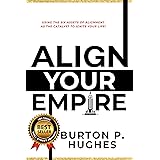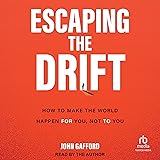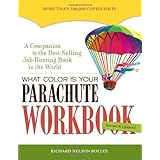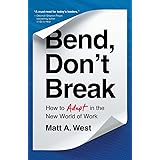Navigating the complex landscape of professional life requires a clear strategy, especially when faced with feelings of stagnation or uncertainty. The accompanying video above eloquently highlights the critical journey of transforming a career from unspecialized labor to a fulfilling and in-demand vocational calling. This crucial shift hinges upon the thoughtful integration of three fundamental pillars: passion, proficiency, and profitability, forming a powerful framework for achieving sustained professional alignment.
Indeed, many individuals find themselves trapped in roles that offer little beyond a paycheck, often leading to significant long-term dissatisfaction and a palpable sense of being professionally adrift. The speaker’s personal account, detailing a decade spent in a medical transcription department and earlier years in data entry, underscores the inherent risks of roles that lack specialized skills or significant barriers to entry. Such positions, while providing immediate income, frequently leave professionals vulnerable to economic shifts, technological advancements, or corporate restructuring, as demonstrated by widespread departmental layoffs. Consequently, developing a robust and adaptable skillset becomes an indispensable component of career resilience.
Beyond the Treadmill: Escaping Unspecialized Labor
The contemporary global economy places an increasing premium on specialized expertise and adaptable skill sets. Remaining within an unspecialized role for an extended period, as the speaker experienced with easily replaceable jobs, significantly limits future career mobility and earning potential. This professional stagnation can lead to a critical void in marketable skills, leaving individuals unprepared for the dynamic demands of the modern workforce. Data from various labor market analyses consistently indicate that roles requiring unique technical knowledge or complex problem-solving abilities command higher salaries and offer greater job security. Therefore, a proactive approach to skill acquisition is not merely beneficial; it is absolutely essential for long-term career viability.
Consider the significant opportunity cost associated with delaying professional development. Each year spent in a role that offers minimal upward mobility or skill transferability represents lost time for cultivating valuable competencies. Furthermore, the psychological impact of unfulfilling work can manifest as decreased motivation, heightened stress, and a general sense of disenchantment. Strategic career planning necessitates a forward-thinking mindset, actively seeking opportunities that foster growth and build a tangible portfolio of expertise. This strategic pivot ensures that one’s professional journey is characterized by continuous advancement rather than by static repetition.
The Perils of Professional Stagnation
Many professionals inadvertently fall into the trap of maintaining comfortable yet unchallenging positions, postponing the arduous task of skill diversification. This complacency often stems from a fear of change or a perceived lack of alternative opportunities. However, the speaker’s revelation that his medical transcription department was eventually laid off, despite his temporary exemption, serves as a stark reminder of the impermanence of even seemingly stable, unspecialized employment. Organizations frequently streamline operations through automation or outsourcing, making roles that involve repetitive tasks particularly susceptible to disruption. Consequently, cultivating a specialized niche or acquiring skills that are resilient to such shifts is paramount for maintaining career security.
Industry reports consistently highlight that employees who actively invest in learning new technologies or expanding their capabilities are significantly more likely to navigate economic downturns successfully. Conversely, those who neglect continuous learning face a heightened risk of obsolescence within their respective fields. The anecdote of the speaker’s wife consistently suggesting computer training illustrates the external validation often required to recognize one’s latent talents. Overcoming internal resistance and the influence of unambitious peers becomes a crucial step in redirecting one’s professional trajectory toward specialized, in-demand areas.
The Three Pillars of a Fulfilling Vocational Calling
Identifying a true vocational calling involves a meticulous evaluation of personal attributes and market realities. The diagram introduced in the video, originating from Michael Hyatt’s insights, provides a robust framework by integrating three indispensable components: Passion, Proficiency, and Profitability. Neglecting any one of these elements invariably leads to professional dissatisfaction, financial instability, or a perpetual cycle of job searching. True career alignment emerges only when these three critical factors converge harmoniously, creating a sustainable and deeply satisfying professional path.
This synergistic model moves beyond simplistic notions of “following your passion” by grounding personal interests in practical market dynamics. An individual may possess an ardent passion for a particular activity, yet without the requisite skills or a viable economic market, this passion remains merely a hobby. Conversely, being exceptionally proficient at a well-paying job offers little solace if the work itself is despised, leading to profound misery. Therefore, a holistic approach that balances personal fulfillment with practical viability is essential for crafting a career that endures and thrives.
Pillar One: Passion – Fueling Your Professional Drive
Passion forms the intrinsic motivational core of any fulfilling career, representing the activities that genuinely excite and energize an individual. When work aligns with deeply held interests, the effort required feels less burdensome, and engagement levels naturally escalate. As the speaker suggests, everyone possesses innate interests, whether in technology, business, creative pursuits, or humanitarian efforts. However, passion alone, exemplified by an enthusiasm for collecting baseball cards, rarely translates into a sustainable income stream unless strategically leveraged. True vocational calling integrates this intrinsic drive with practical considerations, ensuring that enthusiasm translates into tangible output.
Research into job satisfaction consistently indicates that employees who feel passionate about their work report higher levels of well-being and productivity. This emotional investment fosters resilience during challenging periods and encourages continuous self-improvement. Nevertheless, while passion is a powerful catalyst, it must be tempered by a realistic assessment of one’s capabilities and the economic landscape. A career built solely on passion, without the complementary pillars of proficiency and profitability, risks becoming an uncompensated pursuit, eventually leading to disillusionment and financial strain.
Pillar Two: Proficiency – Honing Your Skills and Talent
Proficiency refers to the demonstrable skills and abilities one possesses, those areas where an individual naturally excels or has dedicated significant effort to master. The speaker’s innate aptitude for computers, recognized by his wife, perfectly illustrates how latent talents can often be overlooked by the individual themselves but are glaringly obvious to others. True proficiency is not merely about being “good” at something; it involves a level of expertise that others seek out and are willing to compensate for. This mastery establishes credibility and builds a reputation, making an individual an invaluable asset in their chosen field.
Developing proficiency often requires deliberate practice, continuous learning, and a commitment to refining one’s craft. While some individuals are naturally gifted, consistent effort is typically the primary driver of expertise. However, the video wisely cautions against pursuing proficiency in areas that ignite no passion, as illustrated by the perpetually complaining auto mechanic. Being highly skilled in a hated profession inevitably leads to burnout and chronic dissatisfaction, regardless of the financial rewards. Consequently, aligning one’s proficiency with genuine interests is paramount for sustainable career satisfaction and professional longevity.
Pillar Three: Profitability – Ensuring Market Demand and Compensation
Profitability addresses the market viability and economic demand for a particular skill set or profession, ensuring that one’s efforts can translate into a sustainable income. This pillar is perhaps the most pragmatic, serving as a critical reality check for even the most passionate and proficient individuals. As the speaker articulates, a passion for baseball cards, even if coupled with deep expertise, becomes a mere hobby if it fails to generate substantial revenue. An ideal vocational calling exists within industries or roles that are not only in demand but also offer competitive compensation for the specialized skills required.
Strategic career choices necessitate a thorough understanding of labor market trends, industry growth projections, and compensation benchmarks. Fields such as software development and nursing, cited in the video, exemplify professions that consistently demonstrate high demand and attractive salary structures due to their essential nature and the specialized training required. Conversely, pursuing a degree in a field with limited market demand, such as certain arts or humanities degrees without a clear commercial application, can lead to significant student debt and formidable challenges in securing gainful employment. Therefore, a careful assessment of market profitability is crucial to avoid financial hardship and ensure long-term career stability.
Actionable Steps to Discover Your Ideal Vocational Calling
Embarking on the journey to identify your vocational calling requires structured introspection and external validation. The speaker outlines a practical, three-step process that encourages individuals to systematically evaluate their strengths, interests, and the economic landscape. This methodical approach helps clarify priorities and identify synergistic opportunities where passion, proficiency, and profitability intersect. Implementing these steps can profoundly transform one’s professional trajectory, steering it toward greater fulfillment and financial security.
The self-discovery process is rarely linear; it involves experimentation, reflection, and sometimes, uncomfortable truths about one’s current path. However, by engaging earnestly with these questions, individuals can construct a clearer vision of their ideal career. This proactive engagement mitigates the risks of simply drifting through professional life, instead empowering individuals to architect a career that genuinely reflects their aspirations and capabilities. Furthermore, understanding the dynamic nature of work in 2024 and beyond necessitates continuous re-evaluation of these pillars, ensuring ongoing alignment with evolving market demands.
Step One: Identify Your Proficiencies – What Are You Good At?
Commence by conducting an honest appraisal of your inherent talents, learned skills, and areas where you consistently achieve positive results. Often, individuals struggle to objectively identify their own strengths, making external input incredibly valuable. Solicit feedback from trusted mentors, colleagues, friends, and family members, inquiring about what they perceive as your standout abilities or areas of natural aptitude. This external perspective can illuminate capabilities that you might take for granted or deem insignificant. Compile a comprehensive list of these identified proficiencies, no matter how disparate they may initially seem.
Consider both hard and soft skills, ranging from technical competencies like programming or data analysis to interpersonal strengths such as communication, leadership, or problem-solving. Think about tasks you complete with ease, or situations where others frequently seek your assistance. Analyzing past successes, both professional and personal, can also reveal recurring patterns of competence. For example, if you consistently find yourself organizing complex projects or simplifying intricate concepts for others, these indicate strong organizational and communication proficiencies, respectively. Documenting these strengths provides a foundational understanding of your marketable assets.
Step Two: Uncover Your Passions – What Do You Love Doing?
Subsequently, delve into an exploration of your intrinsic interests and activities that genuinely ignite your enthusiasm. Reflect on what topics you enjoy discussing, what subjects you naturally gravitate towards learning, or what activities absorb your attention completely, making time seem to vanish. This inquiry extends beyond current job duties to include hobbies, pastimes, and even long-forgotten aspirations. Perhaps there’s a childhood interest or a dormant skill that, when revisited, sparks renewed excitement. List several of these passion-driven areas, regardless of their current perceived practicality.
Pay close attention to moments of flow, where engagement is so high that the activity itself becomes its own reward. This could manifest as delving into complex problems, creating something new, or deeply helping others. Consider the content you consume – the books you read, the documentaries you watch, the conversations you seek out. These indicators often point toward areas of genuine passion. Understanding what truly motivates you provides the essential emotional fuel for a sustainable and enjoyable career journey, ensuring that your work aligns with your deepest interests rather than merely external obligations.
Step Three: Assess Profitability – Where Do Market Demand and Compensation Intersect?
Finally, with your lists of proficiencies and passions in hand, rigorously evaluate each item against the metric of market profitability. This crucial step involves filtering your aspirations through the lens of economic reality, identifying which of your strengths and interests align with in-demand fields that offer competitive compensation. Cross off any areas that, despite your passion or proficiency, lack a viable economic market or present limited opportunities for sustainable income. This pragmatic assessment prevents investing time and resources into career paths that are economically unsustainable.
Research current industry trends, analyze job market reports, and investigate average salaries for roles related to your combined proficiencies and passions. Consider the long-term outlook for these industries, accounting for technological shifts and evolving consumer needs. For instance, while a passion for classic film may be strong, its direct profitability as a primary career might be limited without a highly specialized niche. Conversely, a proficiency in data analytics combined with a passion for problem-solving within a growing tech sector presents a highly profitable intersection. This careful analysis ensures that your chosen vocational calling is not only fulfilling but also economically viable, providing a robust foundation for a thriving professional life.









